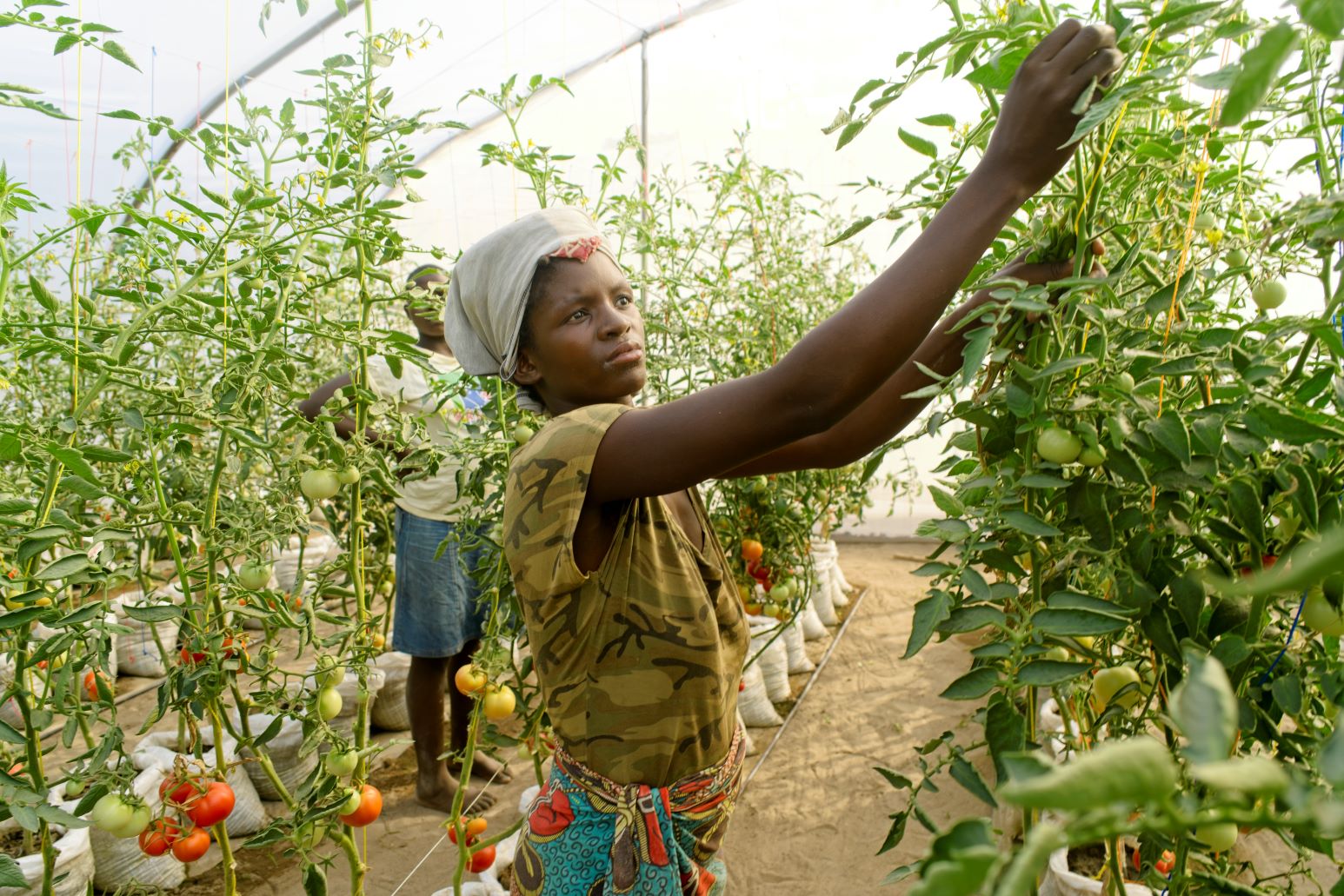Practical Action at COP29
11-22 Nov 2024
Baku, Azerbaijan
Putting frontline communities at the heart of decisions
Extreme heat, destructive wildfires, and catastrophic storms and floods are affecting our global community. The climate and nature crises are pushing millions into poverty every year, driving people from their homes and threatening food supplies. We need to act and fast. The way in which the world responds to these emergencies are crucial to all our futures. We need to make a change.
What is COP29?
COP29 is the climate conference led by the United Nations Framework Convention on Climate Change (UNFCCC), was held in Baku, Azerbaijan, from 11th to 22nd November. 2024’s climate summit needed to move beyond past commitments to agree on a bold new finance deal that addressed people’s needs and tackled the scale of the problem. Accelerating a transition to an economy that works for both people and the planet.
As communities on the frontlines faced the interconnected challenges of biodiversity loss, climate change, and poverty, Practical Action focused on providing support that addressed the complexities of these issues through our expertise in community-led initiatives. Our team aimed to ensure that government representatives and policymakers prioritised these increasingly significant issues and committed to ambitious decisions that could bring about the necessary change. We also collaborated with the private sector and civil society organisations in order to forge partnerships that demonstrate and scale the solutions needed for a brighter future for vulnerable communities. This meant redirecting resources to initiatives that genuinely support both people and nature.
We know that those living on the frontline are now facing multiple, unprecedented emergencies. So our task was to persuade government representatives to take these two key issues seriously and ensure they made ambitious decisions.
Why did Practical Action go to COP29?
The ultimate aim of this summit was to limit the climate crises and impact on our world.
At COP29, we saw our role as sharing what we have learnt from those who are already adapting to extreme climate events. Some of our staff were part of national delegations, directly influencing the negotiations. We also influenced the outcomes by making sure the most vulnerable are heard and focused on ensuring more support and finance was directed to meeting their needs.
Our Head of Climate and Resilience, Colin McQuistan, says,
“The annual climate negotiations need to reflect the whole of society, that is why organisations such as Practical Action need to be in the room. We have a role to play, it’s not just the responsibility of governments to act, all sectors of society need to act, to ensure that we are doing the maximum possible to reverse climate change. Where things are not possible, we need to address the impacts of the climate emergency in an inclusive and holistic way. Join us as we put hope into action.”
We provided evidence and technical support to governmental delegations, participated in events, and spoke to the media. We showcased bottom-up adaptive work by people on the front line of climate change, which works with nature, not against it. We called for a focus on the approaches and resources needed to scale change and enable communities to adapt and deal with the loss and damage that they are already experiencing.

What is the NCQG?
2024 was a critical year for international climate finance. At COP29, countries are set to agree a New Collective Quantified Goal on climate finance (NCQG). The adoption of an ambitious NCQG was a crucial opportunity to redefine international climate finance mechanisms and learn lessons from the current $100 billion goal – including debt repayment and other financial barriers that developing countries currently face.
The NCQG aimed to develop trust and cooperation among countries and set a new financial target to support developing countries to take climate action. It implements the legally binding Paris Agreement and crucially, it needed to reflect the evolving needs and priorities of communities on the frontline of climate change.
Our experience is in working with people on the frontline to adapt to the new challenges in of these two key issues, climate change and biodiversity. Developing nations are disproportionally impacted changes to their environment so our aim was to ensure that no one was left behind. We will brought a diversity of views and expertise from our work with communities across South Asia, Latin America, and Africa.
There’s a great deal of work to be done, but we know from experience that big change is possible, and we invite you to join us as we chose a better future.
Essential outcomes we wanted to see at COP29
- Ensure climate finance works for all
A new finance goal, the New Collective Quantified Goal (NCQG), was being decided at COP29 abut it didn’t meet the needs of developing countries and their vulnerable communities. - Better finance for affected communities
Decisions at the summit needed to ensure climate finance was accessible as well as affordable. We needed more grants and concessional loans so that communities are able to adapt and fund the losses and damages that they are suffering. - The transition to clean energy advanced
We needed more people to be able to harness the transformational effects of clean affordable energy. Involving boosted mitigation efforts and access for hard-to-reach communities. - Strong and tailored country plans
The 2024 climate summit needed to act as a valuable space for governments to review their national climate plans (Nationally Determined Contributions). These needed to include greater efforts to ensure that communities on the frontline are safeguarded and received the proper support they needed. - Solutions that work for people and nature
Nature, together with people’s lives and livelihoods should have been at the heart of solutions. This should have involved inclusivity and supporting of the most vulnerable and marginalised communities, meaning they could take ownership of solutions and adapt to their changing environment.
Resources for COP
Browse our publications and reports, learn about our work and contact us to tap into years of experience helping people on the frontlines of the climate and biodiversity crises.
For press and media enquiries
Contact Steve Kubate:


